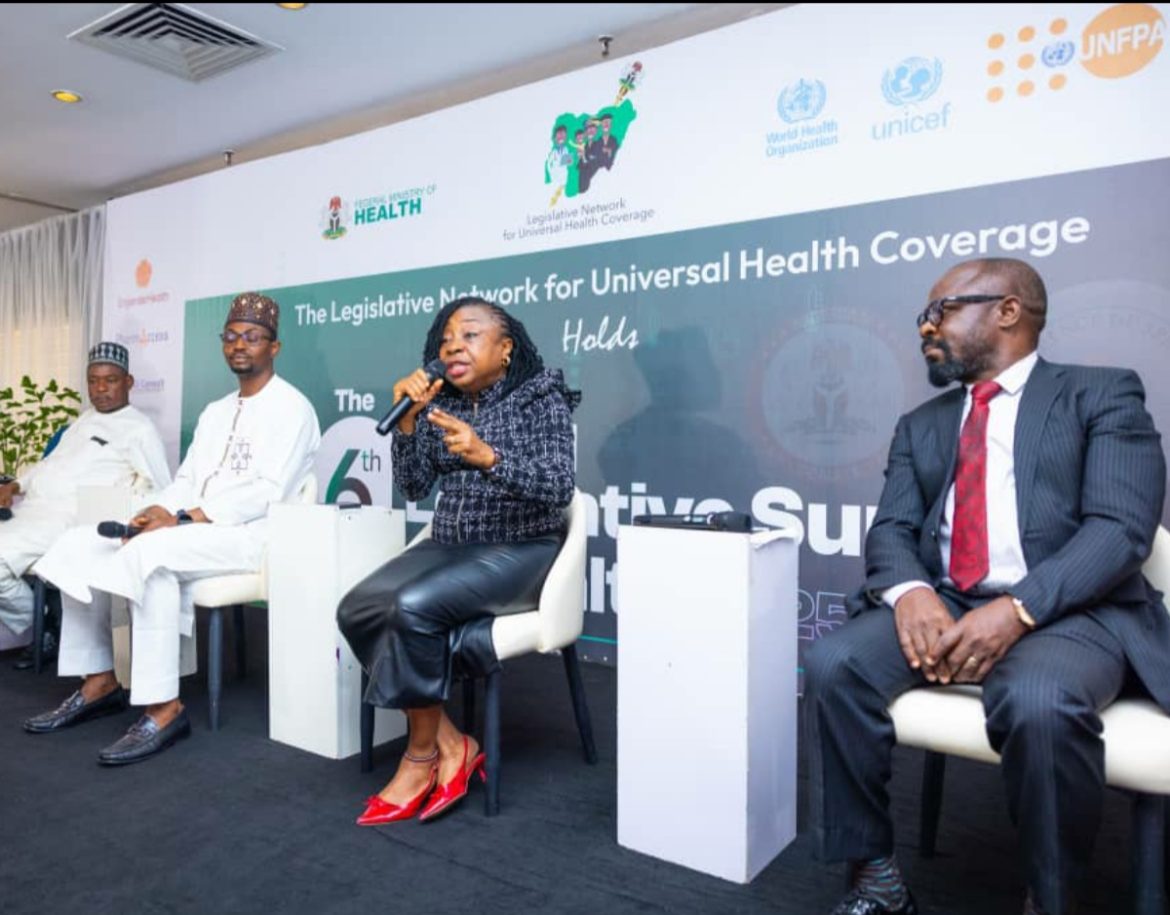By Franca Ofili
Stakeholders have called for accelerated policies, investments, and innovations to build climate-smart, energy-resilient, and sustainably financed health systems in Nigeria, anchored on legislative accountability and strengthened institutional partnerships.
Dr Pavel Ursu, World Health Organisation (WHO) Representative to Nigeria, made the call on Monday in Abuja during the Legislative Roundtable on Climate, Environment, and Sustainable Health.
Represented by the Deputy Country Representative, Dr Alexander Chimbaru, Ursu emphasised the urgent need to strengthen Nigeria’s health system against growing climate threats that increasingly disrupted environmental balance and population well-being.
Ursu highlighted Nigeria’s vulnerability to climate change, noting that its impacts exacerbated existing health challenges, strain infrastructure, and increased the burden of diseases in rural and urban communities alike.
“Nigeria faces severe health, social, and economic consequences from climate change, including more frequent climate-related disasters and worsening health inequalities affecting already marginalised and vulnerable groups,” he said.
He added that investing in climate-resilient healthcare was both a moral and economic imperative, as the effects of climate change were disproportionately borne by those with limited access to resources.
Ursu stressed the need for sustainable financing mechanisms to support climate-smart health systems, calling for domestic resource mobilisation, global cooperation, and innovative solutions to bridge Nigeria’s healthcare funding gaps.
He further underscored the vital role of legislation in promoting sustainable health financing and ensuring accountability frameworks that strengthened climate resilience within Nigeria’s evolving health policy landscape.
The WHO Representative commended Nigeria’s commitment to addressing health and climate challenges through initiatives such as the National Health Act and the National Climate Change Policy.
He urged policymakers to prioritise climate-health resilience in development plans and budgets, ensuring that healthcare facilities were adequately equipped to protect citizens from climate-induced health risks.
Ursu reaffirmed WHO’s continued support for Nigeria through technical assistance, capacity building, and advocacy for sustainable health financing and equitable access to essential health services nationwide.
He reiterated the organisation’s commitment to collaborate with government and development partners to fast-track progress toward universal health coverage and climate-resilient health systems.
According to him, the roundtable provided a platform for stakeholders to discuss policy priorities, share innovations, and forge partnerships to address pressing climate, environmental, and sustainable health issues.
He called for urgent, collective action to protect the health and well-being of Nigerians while promoting environmental stewardship and sustainable national development.
In her welcome address, Ms. Rita Michael-Ojo, Executive Secretary of the Nigerian Environmental Summit Group (NESUG), said addressing those challenges required courage, clarity, and unified national commitment.
Michael-Ojo noted that the roundtable was co-convened by the WHO, the Federal Ministry of Health and Social Welfare, and NESUG to foster dialogue on environmental sustainability and energy resilience.
“Nigeria is at a crossroads, and its future depends on how effectively it responds to these interconnected challenges of energy insecurity, environmental degradation, and public health,” she said.
She warned that without clean energy, hospitals could not function effectively, and without a sustainable environment, economic growth and human development would remain critically undermined.
Michael-Ojo emphasised that accountable governance was vital to ensuring Nigeria’s policies endured, evolved, and translated into tangible benefits for citizens across every region of the country.
She revealed that Nigeria loosed more than100 billion dollars annually to the impacts of climate change, including flooding, deforestation, desertification, and air pollution.
According to her, more than 150 million Nigerians live below the poverty line, enduring energy insecurity, unsafe water, and widespread environmental decline that hinder national progress.
She added that those challenges also created opportunities for Nigeria to reimagine its sustainability approach and harnessed green innovation for inclusive economic transformation.
Michael-Ojo envisioned a Nigeria where every primary healthcare centre ran on renewable energy, communities thrive under green infrastructure, and youth become innovators driving environmental sustainability.
She said the vision guided the roundtable, which united legislators, policymakers, development partners, and innovators to align investment and legal frameworks for sustainable health systems.
Michael-Ojo announced that the Nigeria Environmental Summit (NESt 2026) would be held from March 25 to 26, 2026, bringing together global stakeholders to advance Nigeria’s green agenda.
She said the summit aimed to unlock Nigeria’s 20 billion euro green economy potential, positioning the country as a leader in Africa’s sustainable energy and environmental transition efforts.
She added that NESUG remained committed to strengthening environmental governance, institutionalising sustainability culture, and building a secure, energy-efficient, and health-resilient Nigeria for future generations. (NAN)
Stakeholders move to fast-track energy-resilient policies, investments

